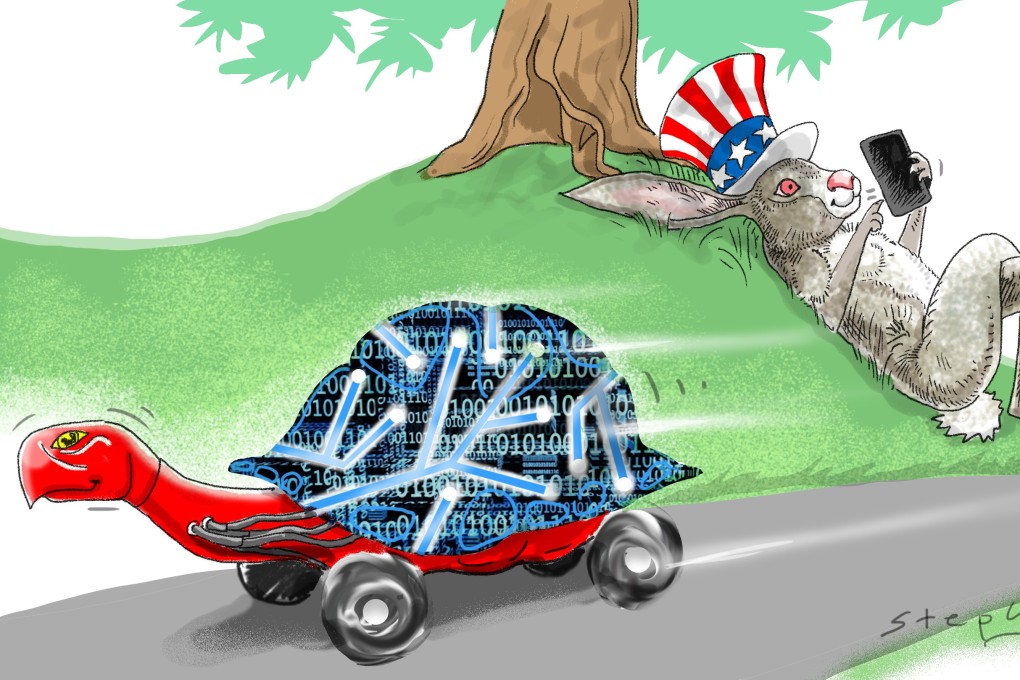Advertisement
Opinion | China and the US may be competing over AI, but they don’t need to engage in a race to the death
- China’s governance model, the massive number of internet users and a generation of entrepreneurs are driving progress in AI. While China’s boom has provoked concern in the US, there are many areas where the two countries can collaborate
Reading Time:4 minutes
Why you can trust SCMP

Embroiled in a trade war with China, the Trump administration, in February, signed an executive order aiming to spur the development of artificial intelligence, in response to the rising fear in academia and government that the US is losing the race for global AI leadership to China.
Such fears are not entirely unfounded. China has a well-funded commitment to the development of AI. The leadership in Beijing has outlined its ambitions in various development plans, including the initiative to build “advanced manufacturing”. According to Tsinghua University’s China AI development report, released last year, China has secured a leading position in the AI echelon in both technology development and market applications. China ranked first in the total number of AI research papers and AI-related patents, and second in terms of the size of its AI talent pool.
There are several key drivers of China’s progress. First, it enjoys a fundamental system advantage. In the past four decades since its “reform and opening up”, China has somewhat unconsciously evolved its own “three-layer duality” development model. At the top, the central government’s guiding hand sets goals and directions for the country, giving the rest of the nation clear targets to follow. At the grass-roots level, private-sector entrepreneurs have re-emerged and become a major force in driving economic growth.
Advertisement
In the middle, China’s local governments channel their resources into national and local priorities, often collaborating closely with entrepreneurs who bring innovative ideas to bear. Local governments often compete with each other but also cooperate within regional clusters. This model, while imperfect, has turned out to be very effective in promoting national development, especially during periods of rapid economic growth.
In the spirit of driving the development of advanced manufacturing, provinces and cities across China have instituted preferential policies for AI start-ups. For example, Tianjin, a major port city in the northeast, launched a US$16 billion fund last year to bolster the local AI industry. Tech companies collaborate with local governments on AI initiatives such as smart city, health care and autonomous driving. Alibaba’s ET City Brain project uses AI to tackle traffic jams, reducing traffic delays by 15.3 per cent in parts of Hangzhou, the city in which Alibaba is headquartered.
Advertisement
Advertisement
Select Voice
Choose your listening speed
Get through articles 2x faster
1.25x
250 WPM
Slow
Average
Fast
1.25x
